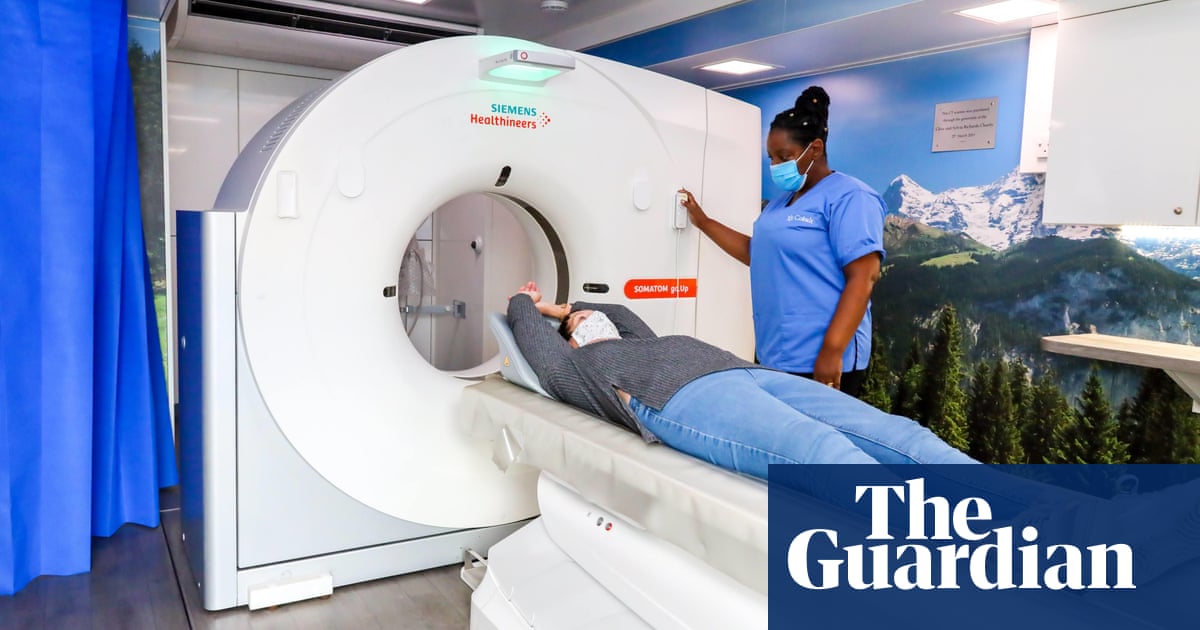
The NHS has launched the world’s largest trial of a potentially gamechanging blood test that aims to detect more than 50 types of cancer before symptoms appear.
More than 100,000 volunteers are being sought to provide blood samples at mobile test clinics in regions across England from Monday to assess how well the test works in the health service.
The Galleri test, which is already available in the US, can find cancers that are difficult to spot early on by picking up fragments of DNA that are shed from tumours into the bloodstream. Among them are cancers of the lung, bowel, pancreas, throat, head and neck.
When a tumour is detected at the earliest stage, patients typically have more treatment options and are five to 10 times more likely to survive compared with those detected at stage four, which is the most advanced.
The chief executive of NHS England, Amanda Pritchard, said the quick and simple test “could mark the beginning of a revolution in cancer detection and treatment” and play a major role in the health service’s ambition to catch three-quarters of cancers at an early stage, when they are easier to treat.
The NHS is writing to 140,000 people aged 50 to 77 from different ethnic backgrounds and inviting them to take part in the trial. Participants, who must not have had a cancer diagnosis in the past three years, will be asked to give a first blood sample at a mobile test clinic, and further samples one and two years later.
To find out whether the test helps doctors to identify cancers early, half the trial participants will have their blood samples screened with the Galleri test straight away, while the other half will have their blood stored for potential testing in the future.
Those taking part will be advised to carry on with their usual NHS screening appointments and still contact their GP if they notice any new or unusual symptoms. The small minority who are found to have potential signs of cancer in their blood will be referred to an NHS hospital for further tests.
The trial is being run through eight NHS cancer alliances that cover Cheshire and Merseyside, Cumbria, Greater Manchester, the north-east, the West Midlands, the east Midlands, the east of England, Kent and Medway, and south-east London. If the first results, expected by 2023, are successful, the NHS aims to open the trial to a million more people in 2024 and 2025.
Previous research on tumours at stage one to three found that the Galleri test picked up 67% of a dozen pre-specified cancers that account for about two-thirds of cancer deaths in the UK and the US, and about 41% of all cancers.
“We need to study the Galleri test carefully to find out whether it can significantly reduce the number of cancers diagnosed at a late stage,” said Prof Peter Sasieni, the director of the Cancer Research UK and King’s College London cancer prevention trials unit.
“The test could be a gamechanger for early cancer detection and we are excited to be leading this important research. Cancer screening can find cancers earlier, when they are more likely to be treated successfully, but not all types of screening work.”












